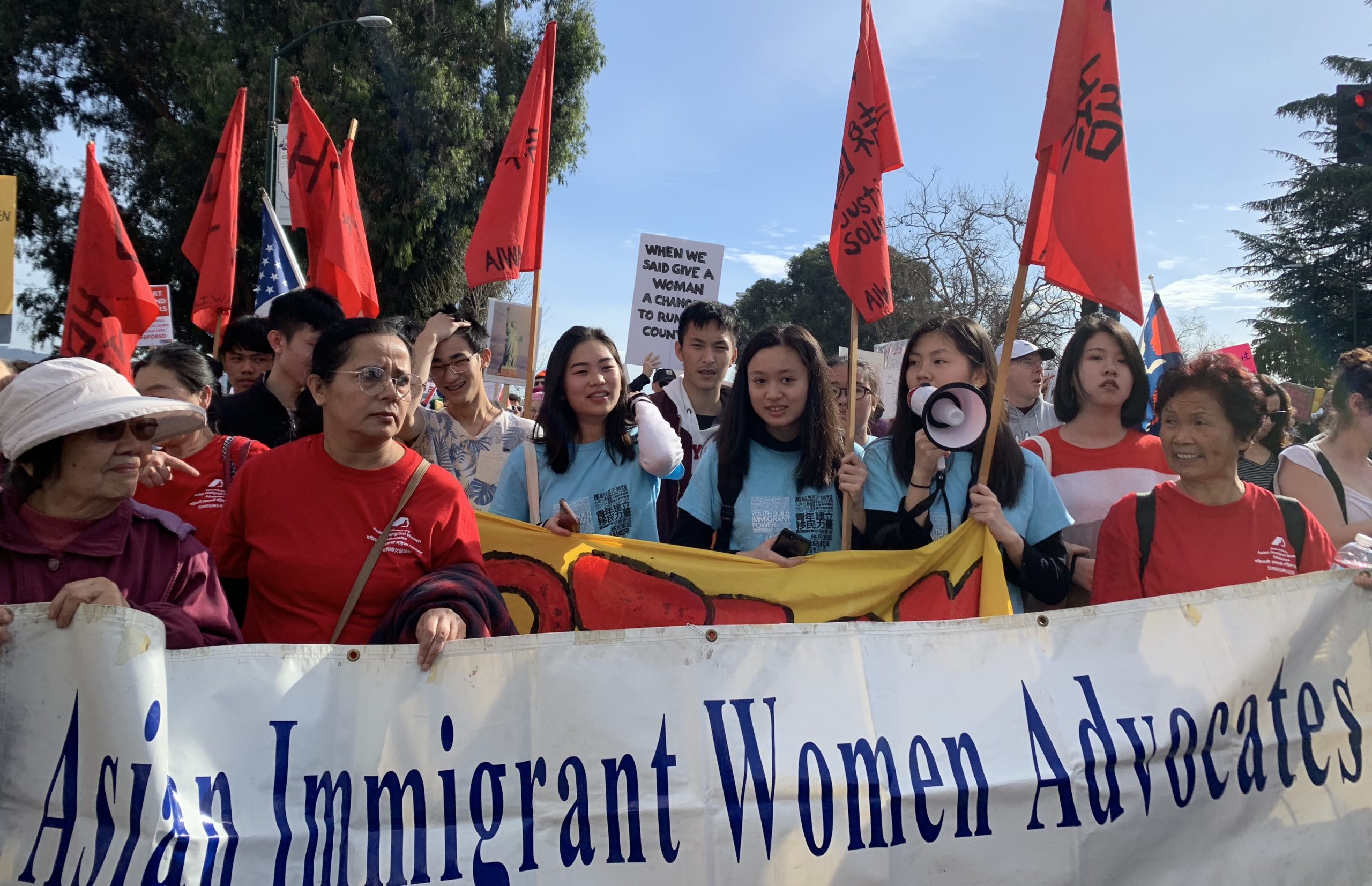Language is not just a means of communication, it is a means of survival and success. Being able to understand lifesaving health information—let alone information about job protections and renters’ rights—all adds up to a major justice issue that impacts thousands of people in the Bay Area. Asian immigrant women who work low-wage jobs, in particular, are more likely to have employers who do not follow labor laws and are not held responsible. Asian Immigrant Women Advocates provides an organizing hub by and for Asian women to voice their demands for justice in the workplace.
Thirty-five years ago, Young Shin and other Asian American women activists saw that there was no organization reaching out to Asian immigrant women who were working in hotels and as seamstresses and garment workers to fight against nonpayment of wages. The rights that Asian Immigrant Women Advocates fought for at its founding are still relevant to what they are fighting for today: voice and dignity of Asian immigrant women in their work—for fair pay and schedules, protection from injuries and to demand that employers follow labor laws.
“Our focus is on developing women’s leadership and voice to demand rights,” explains Young.
“It is important for the people that are affected to work on the issues and develop the campaigns and solutions to improve conditions.”
Since the COVID-19 pandemic started, AIWA has supported home care workers to demand personal protective equipment and hazard pay and serves as a resource for AIWA members and the broader Asian community for translation of all the information, benefits, and restrictions about COVID-19 coming from Bay Area cities and counties and the state government.
“Exploitation happens when people that are most affected are not given resources and don’t have a network,” Young says. “A lot of immigrant parents say, ‘I can sacrifice myself for the sake of the kids.’ They don’t want to rock the boat. That’s how the exploitation continues. If it is just you, they can shout you down, if you have workers together you have more power.”
Today, the majority of AIWA’s members provide in-home care or work in the restaurant service industry, salons, and grocery stores. A grant from the San Francisco Foundation’s COVID-19 Emergency Response Fund helped AIWA provide critical translation services to make sure women with limited English fluency have information on unemployment insurance, sick leave, rent protections, and the latest information to protect their health during the pandemic. For beauty salon and grocery workers, often living paycheck to paycheck, understandable information about rent relief and eviction moratoriums is critical to helping them keep their place to live during the pandemic and after.
“There will be additional information on workers’ rights and financial assistance,” Young says. “As it continues, we will continue to translate and provide it for immigrant workers to know what resources are available.”
Learn more about Asian Immigrant Women Advocates and their work to support the leadership and power of Asian immigrant women in the Bay Area.


